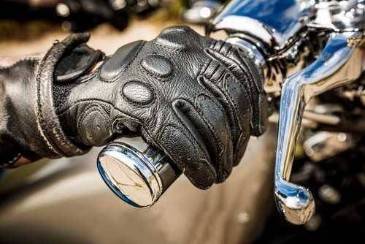Motorcyclists from across the country come to experience Colorado’s open roads and natural beauty every year. Unfortunately, no matter how careful a motorcyclist is when driving on the road, other drivers are always a risk. If you or a loved one have been injured in a motorcycle accident the damages, including medical bills, can be staggering. Colorado does not require motorcyclists to wear a helmet. One of the most frequently asked questions about motorcycle accidents is whether not wearing a helmet will bar or lessen an injured motorcyclist’s right to seek financial compensation.
 When addressing this issue it is important to review the four essential elements of a Colorado Springs motorcycle claim.
When addressing this issue it is important to review the four essential elements of a Colorado Springs motorcycle claim.
FIRST, there must be a legal duty of care on the part of the defendant. These duties include, but are not limited to, duty to maintain a lookout, to control the vehicle, to drive on the right side of the road, and to observe the right of way at intersections.
SECOND, there must be a breach of that duty by a violation of a standard of conduct. This can be as simple as failing to stop at a stop sign or a red light.
THIRD, there must be an injury to the plaintiff. In motorcycle accidents this can be the medical injuries suffered by the motorcyclist or damage to the motorcycle itself.
FOURTH, there must be a causal relationship between the breach and injury. To illustrate the causal relationship, imagine a driver who runs a red light and hits a motorcyclist. The injuries from that accident were likely caused by the driver who ran the red light.
When motorcyclists are involved in traffic accidents the risk of serious bodily injury can be greater than other vehicles due to the exposure a person has on a motorcycle compared to a passenger vehicle. In Colorado, every person has the right to believe that others will obey applicable laws and regulations. Further, it is not negligent in failing to expect that other persons may violate such laws and regulations. This means that it is not your duty to anticipate other drivers’ negligent and unlawful acts while on the road.
Colorado law requires the use of protective eyewear when operating a motorcycle. Colorado law does not require the operator or rider to wear a protective helmet once they turn 18.
This is significant when a person is trying to recover damages for injuries sustained in a motorcycle accident. A motorcycle operator or rider does not devalue his or her claim for damages if they were not wearing a helmet. The Colorado Supreme Court addressed this issue in Dare v. Sobule, 674 P.2d 960 (1984), a wrongful death suit in which a motorcyclist was killed in a traffic accident. The Court held that, under the law of comparative negligence in Colorado, failure to wear a protective helmet is inadmissible to show negligence on the part of the motorcyclist or to mitigate damages. A motorcycle operator or rider does not have to anticipate that another driver is going to cause an accident. It is recommended that all motorcycle operators and riders wear a helmet when on the road. That being said, not wearing a helmet does not make a motorcyclist negligent and it should not decrease the amount of money claimed for medical treatment, pain and suffering, and lost wages.
If you or a loved one has been injured in a motorcycle accident, you need a law firm that will fight for you. The fact that you were not wearing a helmet does not mean that insurance companies can deny your claims for medical injuries, pain, and lost wages. Our team here at The Bussey Law Firm, P.C. will assess your case and work with you as you recover from your injuries. Contact us today to set up a consultation to discuss your case. The number to dial is (719) 475-2555
